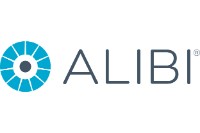How Surveillance Cameras Protect Courthouses
June 17th, 2025
Courthouses in Laredo find themselves subject to all forms of crimes, ranging from simple vandalism to violent acts that could turn deadly fast. Today’s courthouses and courthouse staff need to be kept safe and that can be accomplished by implementing a video surveillance system throughout the building. Security in a courthouse is an intangible quality. If you have no security you can measure its effectiveness, but a good security system is impossible to measure, the benefits are multiple.
Top Five Benefits Of Courthouse Security Cameras
There are several benefits to having security cameras in a courthouse, including:
- Deters Violent Behavior: The mere presence of security cameras, mounted in the courthouse can stop violent behavior before it even starts. The majority of people behave much better when they are aware they are being filmed.
- Monitor For Criminal Actions: A surveillance camera that has been properly placed will allow the operators to monitor video feeds so that any acts of criminal behavior can be noticed and responded to rapidly.
- Protection For Courthouse Employees: In this time, we live in a world where there are threats against judges and acts of violence in the courts. This is occurring throughout the country more and more than ever before. The sad reality is that if you are working in a Laredo courthouse, there are daily tense situations and from day to day, one does not know if the tension will lead to an outburst from suspects or other individuals towards court employees. Video surveillance will spot such escalation and help can be sent before the tension erupts and someone gets hurt.
- Protects Visual Evidence: If an incident or disturbance occurs in or around the courthouse security cameras can provide law enforcement a visual recording of the incident and what transpired, to assist the police. With today’s Internet Protocol (IP) surveillance, video footage is stored digitally and saved on network servers, hard drives or network video recorders. This allows for faster access to data detailing a specific event.
- Remote Video Monitoring: Since IP surveillance cameras transmit digital video over a network, authorized users can view footage remotely and with some cameras, actually pan, tilt and zoom for more detailed viewing.
Courthouse Regulations for Surveillance Cameras
Regulations for video surveillance cameras in the courthouse vary from state to state and specific circumstances. However, there are some regulations that are common and help protect the right to privacy and confidentiality. For example, video surveillance cameras cannot be placed in restrooms where privacy is expected. A knowledgeable security professional understands the laws in TX and will design a system that protects everyone’s rights.
Video Surveillance Placement Strategies For Courthouses
When you are determining where to place your courthouse surveillance cameras, it is always good to meet with your security vendor and walk around the perimeter of the building, the parking lot, and each area of the building inside. Then consider the following questions:
- What type of physical security does the courthouse currently have in place?
- Does the courthouse security system need to be upgraded or a whole new installation?
- Has there been criminal activity around the facility or within the courtrooms?
- What areas of the facility are at greatest risk for potential incidents?
- Have any courthouse staff been attacked or threatened?
For optimum protection, surveillance cameras should be placed at all entrances and exits of the courthouse, video surveillance for all public areas such as lobbies and hallways. Installing security cameras in each courtroom will allow you to monitor all activity and collect visual accounts of any threats or outbursts.







